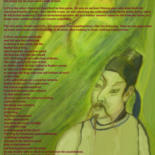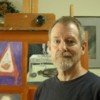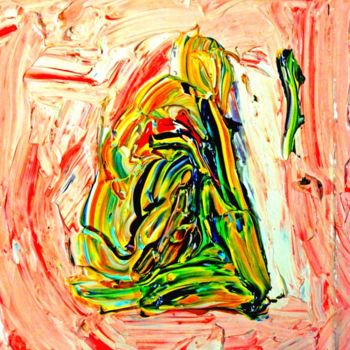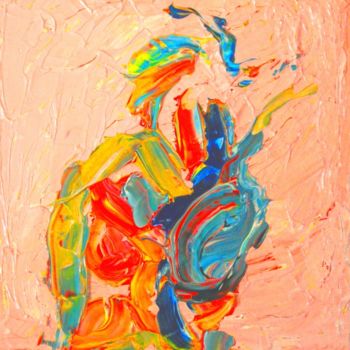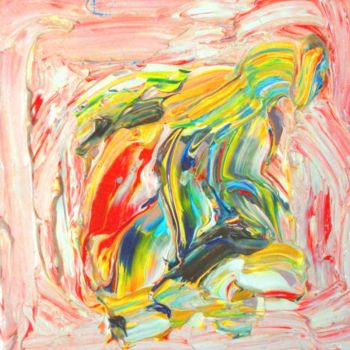Crime Against Nature Poem (2018) Digital Arts από Charles Riley
Αυτή η εκτύπωση διατίθεται σε διάφορα μεγέθη.
Πωλείται από το Charles Riley
Αυτή η εικόνα είναι διαθέσιμη για λήψη με άδεια χρήσης
Πωλείται από το Charles Riley
-
Αυτή η εργασία είναι "Open Edition"
Digital Arts,
Giclée Print / Ψηφιακή εκτύπωση
- Διαστάσεις Διάφορα διαθέσιμα μεγέθη
- Διάφορες διαθέσιμες υποστηρίξεις (Καλό χαρτί τέχνης, Εκτύπωση σε μέταλλο, Εκτύπωση σε καμβά)
- Framing Διαθέσιμο πλαίσιο (Πλωτό πλαίσιο + κάτω από γυαλί, Πλαίσιο + κάτω από ακρυλικό γυαλί)
Crime Against Nature
By way of introduction, Matsuo Basho was a great haiku poet of the shogun period in Japan. One of the most famous haiku poems was spontaneously composed by Basho, when, during a period of silence, he suddenly heard a sound. The resultant poem embodies the spirit of Zen, which Christian theologians have praised as "the highest form of natural mysticism". Zen meditation is also practiced in Christian monasteries, and is similar in sacramental form to Christ's retreat in the desert. Basho's poem is as follows:
Ancient Pond -
frog-jump-in
water-sound.
You might say he expressed a leap of faith.
Li Po is the other character described in this poem. He was an ancient Chinese poet who described the convivial benefits of wine. On a fateful cruise, he was admiring the reflection of the moon in the water, when he fell in and drowned. I had an inebriated ancestor die in a similar manner when he fell from his horse, so I sense some common bond and remote culpability.
The two poets, Basho and Li Po, are opposites, but complimentary, like yin and yang. Thus we can appreciate an acute awareness of relationships of all kinds, that nothing is alone, nothing unimportant –
Li Po to the moon said hello
and fell into the reflection
to drown in his poem, his life.
Basho was a frog,
who leapt into an ancient pond.
All that was left was the sound
of Li Po falling in the reflection of Basho.
The story goes Li Po was drunk,
so did he know he was falling in Basho's poem
or was it a deliberate attempt
to upstage the frog, who was left behind all wet?
At the trial,
Li Po called Basho as a surprise witness.
Basho declared Li Po's innocence.
His action was uncontrived.
Even if inebriation was a factor,
he was not an actor.
An actor such as the referenced frog
could not create.
Speaking was contrary
to the nature
of the frog.
The frog's insistence
on the importance
of getting the story straight
was self-serving
and damaging of the spirit.
The frog by consensus was condemned
to willing compliance
to jump in the ancient pond
only to find himself
not having jumped in the pond
by any reader who so chose to perpetuate the punishment.
Prometheus heard of the fate of the frog.
It didn't sound bad considering
he had to roll a huge stone up a hill
only to have it roll down again.
Prometheus hopefully offered
to exchange sentences with the frog,
but that story is for another time,
when we examine
the connection to the confinement
of the promethean Crazy Horse
at Red Cloud.
Σχετικά θέματα
At an early age I learned about art from an aunt who was an established artist. My father taught me a love of literature. My B.A. was in English Lit. My graduate degrees from Columbia University were in studio art and teaching of college studio art. I had exhibitions in New York City during and after my grad work at Columbia. These included: The Macy Gallery at Columbia; Hudson Valley '85 National Exhibition Juried by Barbara Haskell, Curator of the Whitney Museum; Ariel Gallery in NYC; The Emerging Collector in NYC; Eighth Annual Exhibition of Emerging Artists at the Bronx Museum of the Arts; and In Search of the American Experience by The Museum of the National Arts Foundation. There were also reviews in The New York Times, ArtSpeak (a Gallery Review), and the Bronx News.
More recently, I show my work online at charlesrileyart, exhibit in shows at the Fredericksburg Center for Creative Arts in Fredericksburg, VA. From 2012 through 2013 I displayed my artwork at Art First in Fredericksburg VA. Fredericksburg and Art First are very magical places if you ever get a chance to visit.
My artwork includes painting, mixed media, photography, and computer art, as well as a synthesis of the media. The work is expressionistic and it reflects what it is to be human. My writing, which I combine with the artwork, also reflects the human condition. The artwork is also a means to balance mundane conditioning that distracts us from the unconditioned creativity of the universe. My artwork is fed by relationships and other pursuits and studies such as Tai Chi, Taoism, Literature, Music, Media, and Art.
I studied Tai Chi with Master Da Liu in the 80's at Columbia University and I've been practicing and teaching since. I'm now teaching at two community centers in the Fredericksburg, VA area.
-
Ιθαγένεια:
ΗΝΩΜΈΝΕΣ ΠΟΛΙΤΕΊΕΣ

- Ημερομηνία γεννήσεως : 1949
- καλλιτεχνική τομείς: Έργα καλλιτεχνών με πιστοποιημένη καλλιτεχνική αξία,
- Ομάδες: Πιστοποιημένοι καλλιτέχνες Σύγχρονοι Αμερικανοί Καλλιτέχνες


